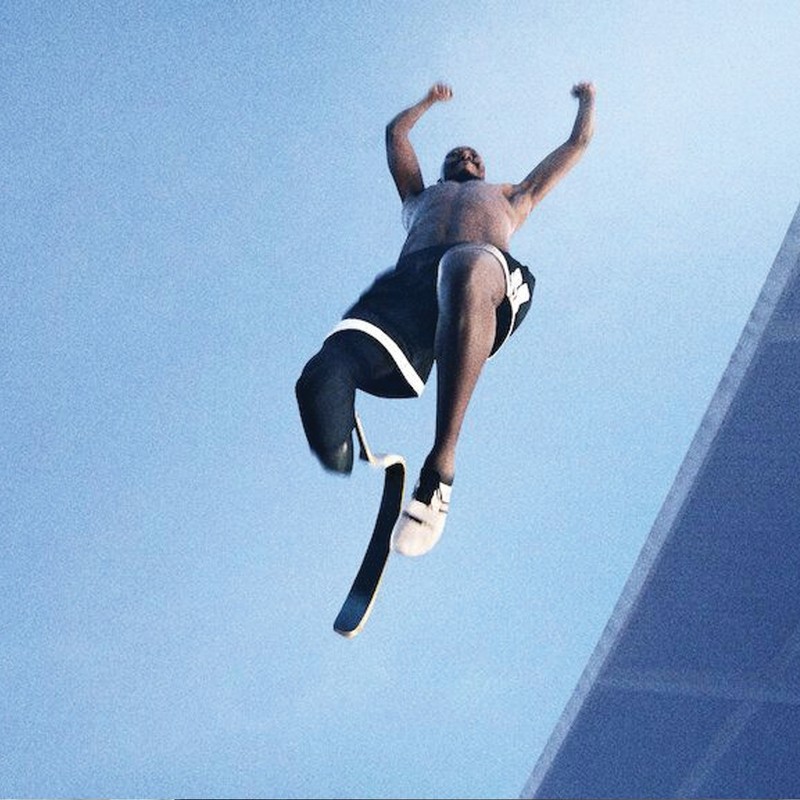
The Inspirational Film To Watch This Week
To coincide with this summer’s Games, Netflix had planned to release Rising Phoenix – a new film taking a closer look at the historical, cultural and personal impact of the Paralympic Games. With coronavirus prompting the inevitable rescheduling of the mammoth sporting event, bosses at the streaming giant have decided to release the film anyway, giving viewers further insight into the power of disabled sport in the lead up to next year’s competition.
Featuring talking head interviews and soundbites with a range of people from the world of Paralympic sport – from athletes to organisers and even Prince Harry – the one hour and 40-minute documentary shines a light on how Paralympic sport has finally gone mainstream. It’s clear from one interview with Australian swimmer and gold medallist Ellie Cole – who was forced to have her leg amputated as child following a battle with cancer – that Paralympic sport has moved into a new age. In her own words, she admits her parents did not have the knowledge or experience to foresee what she would be able to achieve when she was young. It’s something, she says, that the new generation are far more aware of – in large part thanks to the success of the Paralympic Games.
Indeed, the film is full of inspirational stories and clips. Just a smattering of these memories from past year Paralympic Games is enough to bring a tear to the eye. It’s an unbelievable feat – one which many of these athletes deal with day in, day out, not just in the heat of competition.
But not all the interviews are quite so upbeat – some are frank and brutally honest. French sprinter and long jumper Jean-Baptiste Alaize admits the reason he runs so fast is because he’s trying to escape what has happened to him (he lost a leg as part of the conflict during the Burundian Civil War), while American archer Matt Stutzman reveals there is no medical reason or explanation as to why he was born without arms. “Merry Christmas,” he says to the camera, with an ironic smile. Italian wheelchair fencer Bebe Vio admits to thinking “Why me?” on a regular basis or, as she puts it: “There are a lot of bad guys in prison. Why doesn’t this happen to them?” But, she concludes, it’s not worth thinking like this for too long. “Shit happens,” she shrugs.
One interview with British 100m sprinter Jonnie Peacock, however, makes something abundantly clear: London 2012 was a tipping point for the future of Paralympic sport. He describes the chants of his name in the Olympic stadium as “absurd” – especially as he was competing in the 100m final against race favourite at the time, Oscar Pistorius. In the end, Peacock was victorious, going on to win gold and leave Pistorius and the other finalists trailing in his wake. A full clip of the race reminds viewers of what moments such as these mean – not just to the athlete themselves, but to the country and to the world. In summary, Peacock says the first question in interviews prior to London would always be about how he lost his leg. Now the narrative has shifted “from story to sport”.
If you’re not already feeling overwhelmed by this point in the film, it’s here that the documentary takes a step back to trace the history of the Paralympic Games. Out of the rubble of WWII, Jewish-German born Dr Ludwig Guttmann, who had fled Nazi Germany in 1939, hosted a sports competition for British veteran patients with spinal cord injuries on the first day of the 1948 London Olympics. The games were held again at the same location in 1952, with Dutch and Israeli veterans taking part too, making it the first international competition of its kind. In the film, it’s Guttman’s daughter Eva Loeffler who tells the story of her father’s “crazy dream”. Having worked alongside her father at Stoke Mandeville Hospital, Loeffler is often described as a “towering figure” in the world of disabled sport and is one of the longest serving volunteers of the Paralympic movement.
Guttman and Loeffler should be immensely proud of the wider social impact of their work. Indeed, it’s hard to believe it was only 40 years ago that Moscow refused to host the Paralympic games alongside the able-bodied competition in 1980. But plenty of athletes around the world still suffer from ongoing prejudice. “There are just some people who don’t want to see [it],” admits South Africa's teenage track star Ntando Mahlangu. It’s a poignant turn of phrase – especially in the context of both London 2012 and Rio 2016. After all, it was the Rio organisers who made the deliberate effort to include the word ‘Paralympic’ into the name of their official committee – the first time it had ever been done.
The resounding feeling from Rising Phoenix is that there is still so much work to do to celebrate the Paralympic Games and destigmatise disability in sport. And while it’s clear the success of the movement so far has been led by a select group of superhuman people, it might be time for the ordinary among us to take a stand, too. Either way, expect the film to open your eyes to what’s really possible, when you put your mind to it and in the face of the toughest adversity.
Rising Phoenix is available to stream on Netflix now
DISCLAIMER: We endeavour to always credit the correct original source of every image we use. If you think a credit may be incorrect, please contact us at info@sheerluxe.com.

